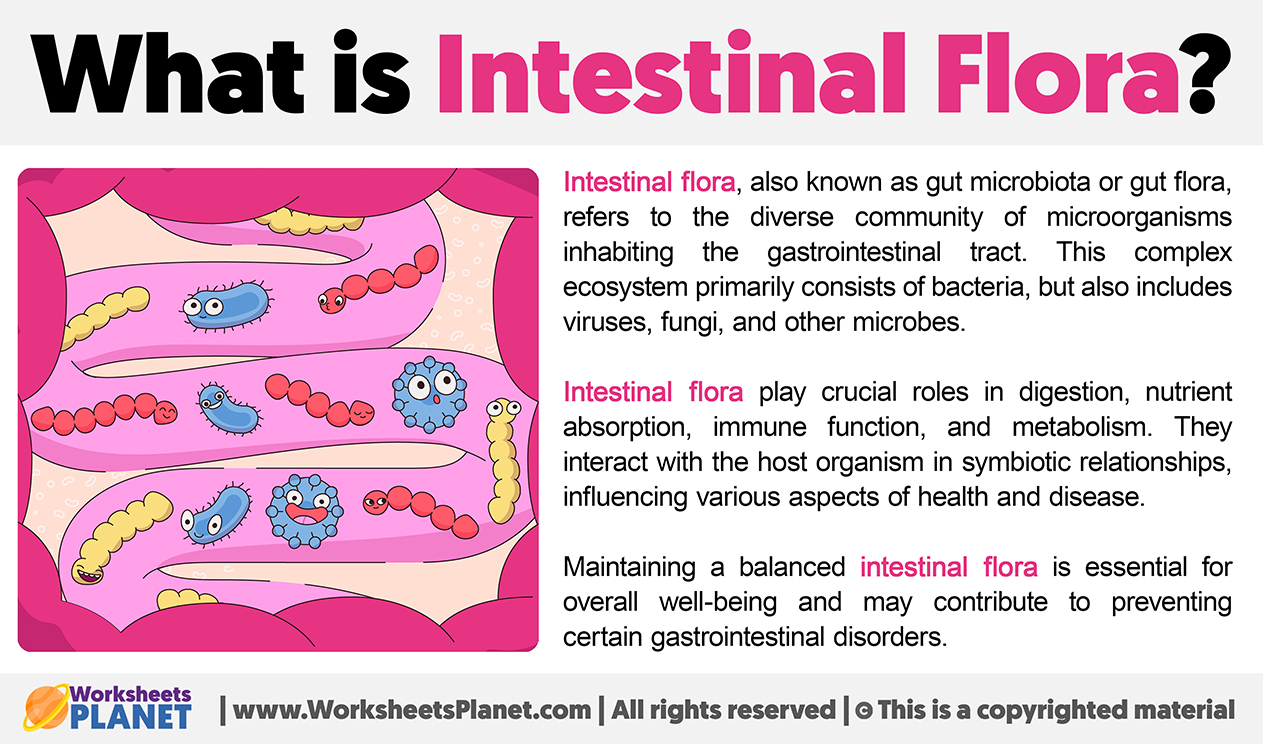Intestinal flora, also known as gut microbiota or gut flora, refers to the diverse community of microorganisms inhabiting the gastrointestinal tract. This complex ecosystem primarily consists of bacteria, but also includes viruses, fungi, and other microbes.
Intestinal flora play crucial roles in digestion, nutrient absorption, immune function, and metabolism. They interact with the host organism in symbiotic relationships, influencing various aspects of health and disease.
Maintaining a balanced intestinal flora is essential for overall well-being and may contribute to preventing certain gastrointestinal disorders.


